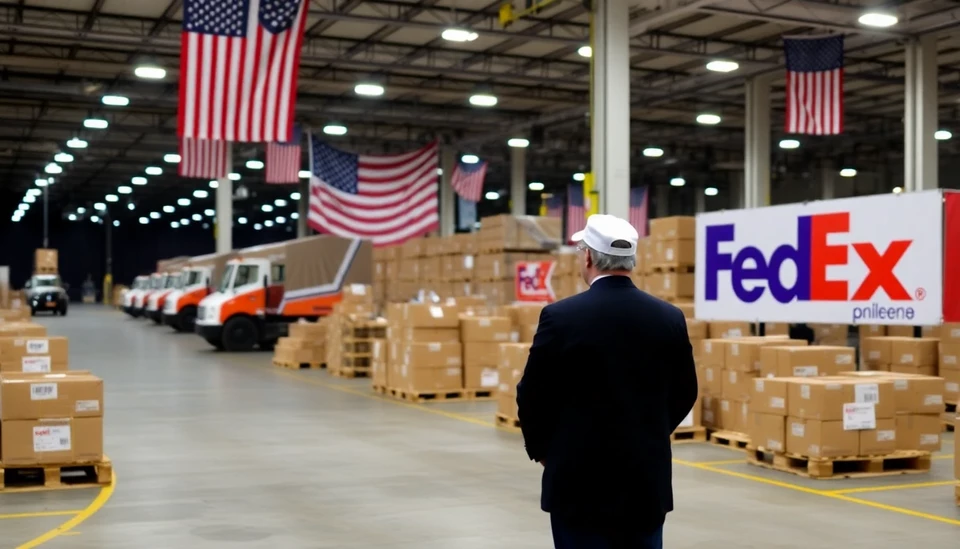
In a recent announcement that has sent ripples through the logistics and e-commerce sectors, former President Donald Trump has unveiled a new round of tariffs on Chinese imports, with specific ramifications for a crucial distribution center located in California. This hub is vital for major players such as Amazon and FedEx, both of whom rely heavily on its operations for timely deliveries across the west coast and beyond.
The strategic location of this California distribution center, known for processing significant volumes of shipments destined for multiple retailers, places it at the epicenter of Trump's trade policies. These new tariffs are expected to increase the costs associated with incoming goods, leading to potential price hikes for consumers and disruptions in supply chains.
Supply chain experts are expressing concern over how this move may exacerbate existing pressures in logistics networks, particularly as industries continue to grapple with remnants of post-pandemic supply chain challenges. Analysts suggest that such tariffs could lead to increased shipping costs, which may subsequently ripple through to customers in the form of higher prices on imported goods.
The distribution center serves not only large corporations like Amazon and FedEx but also small businesses that depend on these logistics giants for their operations. The potential for increased tariffs raises the specter of diminished profitability for these smaller players, who may lack the financial flexibility to absorb the rising costs.
As the announcement unfolds, many are watching closely to see how companies will respond. Will they absorb the costs, or will they pass them on to consumers? Early reports suggest that some companies are already preparing to combat these tariffs with adjustments to their supply chains, possibly seeking alternative sourcing options away from China.
Critics of the tariffs argue that they could lead to retaliatory actions from China, further complicating an already delicate trade relationship between the two economic powerhouses. Previous trade disputes have shown that such tariffs can lead to escalatory measures, arguably contributing to broader economic instability.
Furthermore, as the 2024 presidential election cycle heats up, Trump's stance on tariffs may become a focal point for voters concerned about the economy and trade. His supporters argue that enforcing such tariffs is crucial for protecting American jobs and manufacturing, while opponents contend that they disproportionately hurt consumers and small businesses by increasing costs.
In conclusion, the newly imposed tariffs on Chinese imports by Trump signify an impending shift in the American trade landscape, particularly impacting the logistics operations that underlie the modern consumer economy. The California distribution hub, serving critical functions for both Amazon and FedEx, stands to be significantly affected, and the wider implications of these tariffs will likely unfold in the coming months.
As these developments continue to evolve, it’s clear that businesses will need to adapt to an increasingly complex trade environment, with both challenges and opportunities arising in a landscape shaped by heightened tariffs and robust geopolitical tensions.
#Trump #Tariffs #China #California #Amazon #FedEx #Ecommerce #Logistics #SupplyChain #TradeWar #2024Election
Author: Daniel Foster




